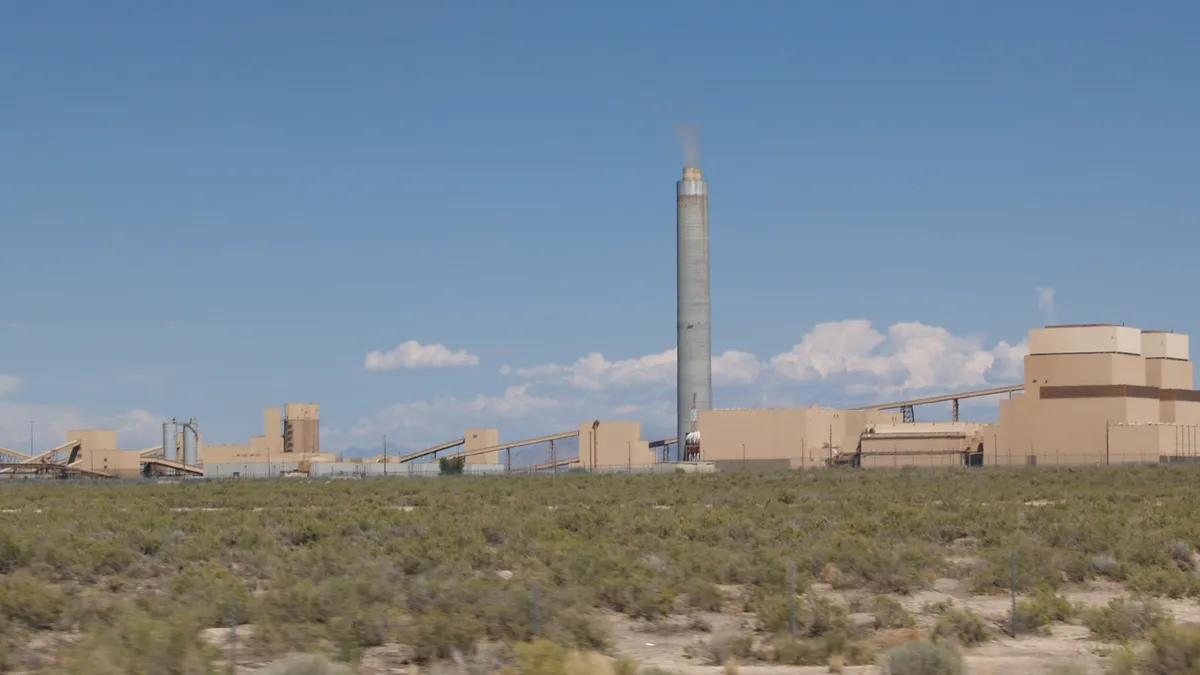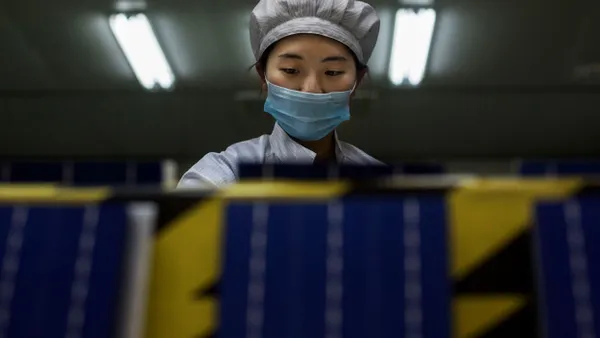Dive Brief:
- Chevron's New Energies division has purchased Magnum Development from private equity firm Haddington Ventures to secure a majority interest in the Advanced Clean Energy Storage project, or ACES, in Delta, Utah, according to an announcement released earlier this week.
- The ACES project aims to use electrolysis to produce up to 100 metric tons of hydrogen per day, which will be stored in naturally occurring salt caverns at the site. The caverns have a potential storage capacity of 300 GWh of energy, according to Mitsubishi Power, which is developing ACES jointly with now Chevron-owned Magnum Development.
- The project will initially provide fuel to the Intermountain Power Project, an 840-MW blended gas power plant also under construction in Delta, but Chevron believes there will be opportunities to supply hydrogen to the transportation and industrial sectors as well.
Dive Insight:
The prospects for Delta, Utah, only seem brighter as the number of major energy companies bought into the town's hydrogen development projects grows.
The concept for the town's hydrogen facilities began as a bid to replace an aging coal plant with something that would use the area's existing infrastructure and maintain its economic vitality, according to John Ward, a spokesperson for the Intermountain Power Agency, which owns the Intermountain Power Project. As planning and construction continued, the overall concept has shifted from an emphasis on providing low-carbon baseload generation to supplement wind and solar energy, to a focus on energy storage, Ward said.
When people question the economic viability of hydrogen, he said, “they are often evaluating hydrogen versus other energy sources for baseload generation. But the proper way to evaluate this concept is as dispatchable renewable energy storage. If you are comparing the economics of this to the economics of batteries, this is a very attractive project.”
To see major partners like Chevron joining the storage component of the project, Ward said, only further validates that concept.
According to Chevron, the acquisition is part of a broader effort to pursue “lower carbon energy solutions.”
“Expansion of the lower carbon intensity hydrogen supply, along with the development of innovative storage solutions, is critical to the reduction of greenhouse gas emissions,” Austin Knight, vice president for hydrogen at Chevron New Energies, said in a statement. “At Chevron, we look for projects that are moving the needle in this respect, and the Advanced Clean Energy Storage project in Delta, Utah is an example of a commercially viable project that will help advance a lower carbon future.”
The current plan, Ward said, is to take surplus renewable energy from existing Intermountain Power Agency participants — mostly municipal utilities in Utah and southern California, including the Los Angeles Department of Water and Power — and provide that power to ACES for conversion into hydrogen. ACES will store the hydrogen and supply it as needed to the Intermountain Power Project to fire gas turbines built by Mitsubishi to run on a blend of hydrogen and natural gas. The project expects to begin operations using 30% hydrogen in 2025.
While the electricity expected to come from the project is already spoken for, Chevron indicated that additional opportunities to supply hydrogen to customers in the utility, transportation and industrial sectors are in the works.














